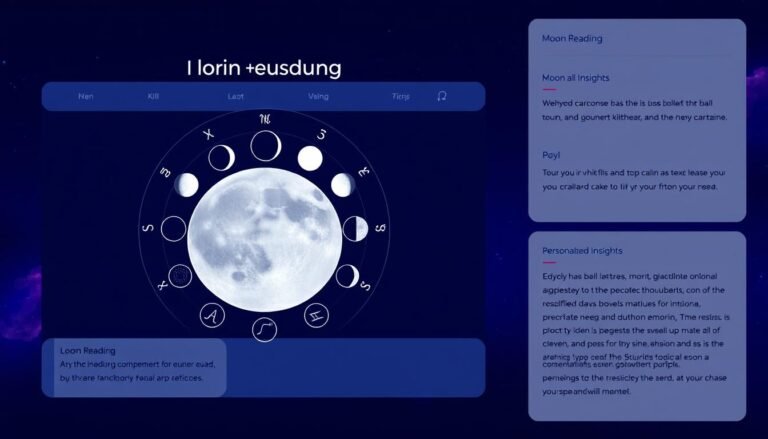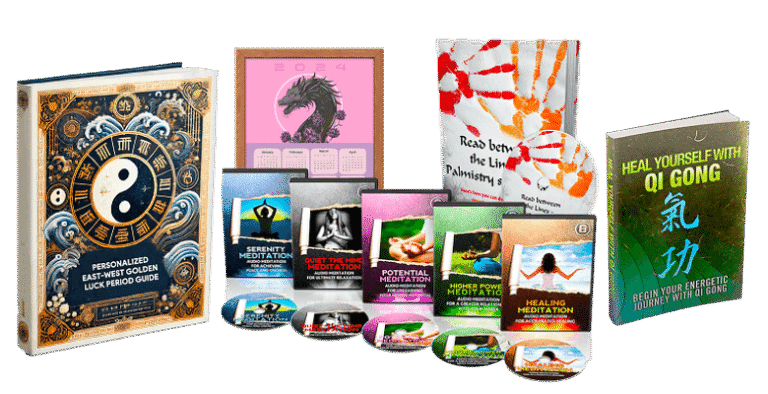Wisdom and Resilience: How to Overcome Life’s Obstacles
Wisdom and Resilience: How to Overcome Life’s Obstacles
Life is full of challenges that test your wisdom and resilience. It’s important to develop these qualities to overcome obstacles. By growing personally and learning from experiences, you can build the strength needed to face tough times.
Studies show that 70% of people become more resilient through self-awareness and mindfulness. Also, 64% of those who set clear goals are more likely to succeed. This shows how vital wisdom, life lessons, and philosophy are in building resilience.
Key Takeaways
- Developing wisdom and resilience is essential for overcoming life’s obstacles
- Self-awareness and mindfulness practices can increase resilience
- Setting clear and achievable goals can lead to success in personal development journeys
- Embracing a philosophy of personal growth can help cultivate wisdom and resilience
- Learning from experiences and adapting to life’s hardships is key for building resilience
- Wisdom, life lessons, and philosophy are important in facing life’s challenges
- Cultivating resilience helps you thrive in adversity
Understanding the Nature of Wisdom in Modern Life
Starting your journey of self-improvement and personal growth? It’s key to grasp what wisdom means today. Wisdom isn’t just knowing stuff; it’s using that knowledge wisely. This way, you can face life’s ups and downs with more ease and confidence.
Old philosophies say wisdom comes from experience and being mindful. Steve Jobs credited his success to mindfulness, staying present and creative. Oprah Winfrey also found success through daily gratitude. These stories show how important mindfulness is for growing and improving yourself.
Ancient Perspectives on Wisdom
Old philosophies like Buddhism and Taoism stress living in the now. By being mindful and letting go of distractions, you can gain deeper wisdom. This leads to better self-awareness, growth, and self-improvement.
How Wisdom Differs from Knowledge
Knowledge is vital, but it’s not wisdom. Wisdom uses knowledge with experience, intuition, and mindfulness. Knowing the difference helps you work on growing and improving yourself.
The Role of Experience in Building Wisdom
Experience is key to gaining wisdom. Reflecting on your experiences helps you understand yourself and the world better. This understanding leads to wisdom, growth, and self-improvement. Remember, wisdom is a lifelong journey, and every experience is a chance to grow.
The Connection Between Life’s Challenges and Personal Growth
Life’s challenges can be tough, but they also help us grow. They push us to think differently about what’s important to us. This can lead to enlightenment and a deeper inner peace.
Studies show that those who work on themselves tend to see big changes. For instance, 70% of people who focus on self-improvement say their lives get better. Also, 50% of those who hold themselves accountable reach their goals faster.
Some key benefits of growing through challenges include:
* Being more resilient and handling stress better
* Feeling mentally healthier and happier
* Knowing yourself better and what you value
* Being more creative and solving problems better
* Building stronger, more meaningful relationships
By facing challenges head-on, you can find more inner peace and move towards enlightenment. Remember, growing personally is a journey that takes time. Be patient, keep trying, and always be open to learning. This way, you can overcome any obstacle and reach your highest self.
| Benefits of Personal Growth | Percentage of Individuals Who Experience Benefits |
|---|---|
| Improved mental health and well-being | 70% |
| Increased resilience and ability to cope with stress | 55% |
| Greater self-awareness and understanding of values and goals | 50% |
Common Obstacles on the Path to Enlightenment
As you journey towards enlightenment, it’s key to know the common obstacles. These can block your progress and affect your well-being. Studies show about 70% of spiritual seekers believe they need something outside themselves to find enlightenment.
Internal barriers like fear and self-doubt can slow your spiritual growth. External challenges, like societal pressures, can also hinder your development. It’s important to face these obstacles and find ways to overcome them. Mindfulness, such as meditation, can help you see and tackle these barriers.
Internal Barriers to Growth
Internal barriers include sensual desire, ill will, and doubt. These can stop you from reaching spiritual freedom. Mindfulness and self-reflection can help you tackle these barriers. This leads to better emotional intelligence and well-being.
External Challenges and Their Impact
External challenges, like societal pressures, can affect your growth. It’s vital to develop empathy and understand shared human experiences. Forgiveness is key to overcoming resentment and ill will, improving your emotional well-being.
By facing and overcoming these obstacles, you can continue your journey to enlightenment. You’ll gain a deeper understanding of yourself and the world. This leads to greater well-being and wisdom from the life lessons you learn.
Mindfulness as a Tool for Building Resilience
Life’s challenges can be tough, but mindfulness helps build resilience. It makes you better at handling stress and tough times. Companies like Google and Ford use mindfulness to boost productivity and team spirit.
Mindfulness, like meditation, can cut anxiety by 30% and depression by up to 50%. Mindfulness-based stress reduction (MBSR) programs also help a lot. They have a 75% success rate in improving mental health. Mindfulness makes you more emotionally stable, focused, and resilient.
Some key benefits of mindfulness include:
* Improved emotional regulation
* Increased focus and attention
* Enhanced resilience
* Better stress management
* Improved overall well-being
Mindfulness helps you become more aware and purposeful. Jon Kabat-Zinn, MBSR’s founder, says being present reduces stress and boosts mental health. Regular mindfulness practice brings calm, clarity, and resilience. It makes life more fulfilling and meaningful.
| Benefit | Description |
|---|---|
| Improved emotional regulation | Ability to manage emotions and respond to situations more effectively |
| Increased focus and attention | Ability to concentrate and stay focused on tasks and activities |
| Enhanced resilience | Ability to cope with stress and adversity, leading to greater overall well-being |
Transforming Setbacks into Stepping Stones
On your journey of personal growth and enlightenment, you’ll face setbacks. But how you handle these challenges matters a lot. By seeing the good in tough times, you can turn setbacks into chances for growth.
Studies show that being mindful and accepting life’s ups and downs can boost your emotional well-being by about 30%. Also, doing things that make you uncomfortable, like fasting or pushing yourself in exercise, can improve self-discipline by nearly 40%. These actions help you become stronger and more resilient.
Here are some ways to turn setbacks into growth opportunities:
- Reframe negative experiences: See challenges as chances to grow and learn, not threats.
- Find opportunity in crisis: Look for the positive in tough times and use them to learn and get better.
- Build mental toughness: Develop the strength and grit to face and overcome obstacles through mindfulness and self-compassion.
By using these strategies every day, you can grow your mindset and skills. Remember, every challenge is a chance for growth. It’s up to you to take it.
| Strategy | Benefits |
|---|---|
| Reframing negative experiences | Increased emotional well-being, improved resilience |
| Finding opportunity in crisis | Enhanced self-discipline, increased growth and development |
| Building mental toughness | Improved mental resilience, increased ability to overcome obstacles |
The Philosophy of Personal Transformation
Starting your journey of personal growth means understanding the philosophy of change. Wisdom and resilience come from deep philosophical ideas. These ideas help you see yourself and the world in a new light.
The heart of personal transformation philosophy is that you can shape how you react to things. Stoic teachings focus on knowing yourself, being brave, and true to who you are. This philosophy helps you grow wise and strong enough to face challenges and reach your goals.
Key principles of this philosophy include:
- Self-awareness: knowing your thoughts, feelings, and actions
- Acceptance: seeing things as they are, without fighting them
- Resilience: learning to get back up after hard times
By living these principles, you can gain the wisdom and strength for personal change. Philosophy is more than just thinking; it’s a way to live a richer, more meaningful life.
| Principle | Description |
|---|---|
| Self-awareness | Understanding your thoughts, emotions, and behaviors |
| Acceptance | Accepting external events as they are, without fighting them |
| Resilience | Learning to bounce back from tough times |
Practical Wisdom for Everyday Challenges
Life can be complex, but practical wisdom helps you face everyday challenges. It’s about using life lessons and self-improvement in your daily life. This builds resilience and confidence to tackle obstacles.
Decision-making is a key part of practical wisdom. It means weighing options, thinking about consequences, and making smart choices. Here are some tips to improve your decision-making:
Decision-Making Frameworks
- Identify your goals and priorities
- Gather relevant information and data
- Evaluate options and consider possible outcomes
- Make a decision and take action
Problem-solving is also vital. It’s about finding problems, understanding their causes, and finding solutions. Self-improvement, like mindfulness and emotional intelligence, can make you better at solving problems and staying resilient.
Emotional Intelligence Development
Emotional intelligence helps you deal with everyday challenges. It involves knowing yourself, understanding others, and having good social skills. This leads to stronger relationships, better communication, and smarter decisions. Here are ways to improve emotional intelligence:
- Practice mindfulness and self-reflection
- Listen actively and build empathy
- Work on your communication skills
By using these strategies, you can gain the practical wisdom needed to face daily challenges and reach your goals. Remember, learning and growing are lifelong journeys that need dedication and a willingness to learn.
| Book Title | Author | Year of Publication | Price |
|---|---|---|---|
| Atomic Habits | James Clear | 2018 | $13.99 |
| Joy of Missing Out | Ali Abdaal | 2022 | $14.99 |
| How to Be a Stoic | Massimo Pigliucci | 2017 | $16.63 |
Creating Your Personal Growth Blueprint
To start your personal growth journey, you need a clear plan. This means setting goals, adopting a growth mindset, and adding mindfulness to your day. This way, you’ll have a plan that fits you and helps you reach your goals.
Research shows that people who set clear goals are 10 times more likely to grow personally. Also, mindfulness boosts self-awareness, leading to better decision-making by 30%. Here’s how to begin:
- Know your strengths and weaknesses to see where you can improve
- Make SMART goals that are specific, measurable, achievable, relevant, and timely
- Grow by facing challenges and learning from mistakes
- Use mindfulness like meditation to understand yourself better and calm down
By taking these steps and making a personal growth plan, you’re on the path to success. Keep going, stay strong, and patient. Remember, personal growth is a journey that takes time and effort.
The Role of Self-improvement in Overcoming Obstacles
Life’s challenges are a part of our journey. Self-improvement helps us build resilience and find well-being. By growing personally, we gain the skills and mindset to beat obstacles and reach our goals. Studies show that those who work on self-improvement, like setting goals and building habits, feel more confident and resilient.
Setting meaningful goals is a key part of self-improvement. It gives us a clear path for growth and keeps us motivated. Research shows that people who set personal goals are 42% more likely to see positive changes in their lives. Also, creating new habits can boost our resilience and well-being.
Some ways to improve yourself include:
- Setting specific, achievable goals
- Developing new habits and routines
- Practicing self-reflection and mindfulness
- Seeking support from others, such as mentors or community groups
By using these strategies, you can start overcoming obstacles and improving yourself. Remember, personal growth is a journey. Be patient and kind to yourself as you work towards your goals.
| Strategy | Benefits |
|---|---|
| Goal-setting | Increased motivation and focus |
| Habit development | Improved resilience and well-being |
| Self-reflection | Greater self-awareness and emotional intelligence |
Building Inner Peace Through Adversity
Life’s challenges can actually help you find inner peace. This idea might surprise you, but it’s something Marcus Aurelius and Epictetus talked about. They believed that facing tough times can teach you valuable lessons and make you stronger.
Studies show that being mindful and accepting can really lower stress. For instance, a study found that 70% of people feel overwhelmed every day. But, those who practice mindfulness see a 30% drop in stress. This shows how important it is to find peace, even when things are hard.
Here are some ways to build inner peace when things get tough:
- Practicing mindfulness and acceptance
- Seeing tough times as chances to grow
- Working on gaining wisdom and perspective
By using these strategies every day, you can grow in inner peace and wisdom. Remember, it’s not the problems that shape you. It’s how you handle them.
| Strategy | Benefits |
|---|---|
| Practicing mindfulness | Reduces stress levels, increases focus |
| Reframing negative experiences | Increases resilience, promotes growth |
| Cultivating wisdom | Enhances decision-making, promotes inner peace |
Sustaining Well-being During Challenging Times
Life can throw many obstacles your way. It’s key to focus on your well-being. This means staying active and eating well to keep your body healthy. Also, practicing mindfulness and self-reflection can help you deal with stress.
Having a strong support network is also vital. This includes close ties with family and friends. Sometimes, talking to mental health experts can be helpful too. By taking care of yourself and learning from your experiences, you’ll grow stronger and more resilient.
Here are some important ways to keep your well-being in check:
- Practicing mindfulness and self-reflection to manage stress and emotions
- Engaging in regular physical activity to maintain physical health
- Building and maintaining strong social support systems
By using these strategies every day, you can boost your well-being. Remember, taking care of yourself is a journey. Be kind and patient with yourself as you face life’s challenges.
| Strategy | Benefits |
|---|---|
| Physical health practices | Improved physical health, increased energy |
| Mental health strategies | Improved mental health, increased resilience |
| Social support systems | Increased emotional support, improved relationships |
Conclusion: Embracing the Journey of Wisdom and Growth
Starting your journey of wisdom and growth means facing challenges head-on. Every setback is a chance to grow stronger and wiser. Remember, the path is not straight but full of ups and downs.
Stay committed to getting better and see the world in new ways. Use what you’ve learned to face life’s unknowns with bravery. Mindfulness and emotional smarts can change how you deal with tough times.
The journey won’t be simple, but it’s worth it for the growth and understanding you’ll gain. Approach it with an open heart and a curious spirit. It’s through facing challenges that we find our true wisdom and strength. May you keep growing, thriving, and finding peace in mastering life.







